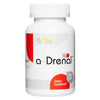New website, same quality supplements & vitamins! Share feedback

Vegetarians: Are You Getting Your Protein?
More and more people are turning to a vegetarian diet these days in order to improve their health, reduce their toxin intake, and keep their food bill down. There are a number of benefits to going vegetarian. Here are just a few:
- Reduced body weight – A study by Cancer Research UK found that, over a 5-year period, vegetarians will put on substantially less weight than meat eaters.
- Lower cholesterol – The vegetarian diet is higher in cholesterol-lowering vegetable foods than that of the typical meat eater. In one study, the vegetarian diet lowered the levels of LDL cholesterol by 29%.
- Longer life – Vegetarians are less likely to become obese, become diabetic, or get cancer. As a result, their life expectancy is greater.
- Reduced cancer risk – A number of studies have shown that vegetarians have a lower risk of developing a range of cancers in comparison to meat eaters.
Getting Enough Protein
Protein forms the building blocks of your body and, as such, is vital for everything that you do. Proteins are either complete or incomplete. A complete protein contains all of the essential amino acids (the ones the body cannot manufacture on its own). Incomplete proteins are missing one or more of the essential amino acids. The missing amino acid is known as the limiting protein. Vegetarian foods will almost always contain incomplete proteins. However, there are a few that do contain all of the essential amino acids. These complete proteins are an important part of a vegetarian diet. Here are the top 5 complete vegetarian sources of protein:- Soy
- Quinoa
- Chia
- Hemp
- Amaranth
Protein Complementarity
In order to get all of the essential amino acids that your body needs throughout the day, you will have to match certain incomplete protein sources together to make a composite complete source, though not necessarily at the same meal, as was previously thought. This process is known as protein complementarity. An example of complementarity is combining rice, which is deficient in methionine, an essential amino acid, with beans. Another example is to mix pasta with cheese. Vegetables contain incomplete proteins. However, it is possible to combine proteins in a vegetarian diet to allow for a full complement of amino acids. The following combinations will ensure that this takes place:- Rice + lentils + vegetables
- Rice + legumes + vegetables
- Grain + legumes + seeds + nuts
Too Much / Too Little
An excess of protein in your system can lead to: • Uric Acid – Gout • Arthritis • Liver and kidney stress leading to allergies Not enough protein will result in: • Muscle weakness • Brain damage • Muscle wasting • Failure to grow Another option in your quest to get all of your essential amino acids is to take a supplement. There are now protein shake formulations on the market that are designed specifically to meet the requirements of vegetarians. They will supply vegans and vegetarians an abundant and high quality source of protein extracted from vegetable based sources, including potato, chlorella, and peas. These supplements also contain the health-giving benefits of vitamins, minerals, and other nutrients like fiber. These ingredients all work together to support and promote optimal nutritional intake.Vegetarian Powder Shakes
Almond Attacker
- 1 cup almond milk
- 2 scoops vegetarian protein powder
- ½ cup oatmeal
- 2 tablespoons dark chocolate
Bananarama
- 1 frozen banana
- 1 cup skim milk or dairy-free milk
- 1 tablespoon cinnamon
- 1 scoop vegetarian protein powder
- ½ cup desiccated coconut




